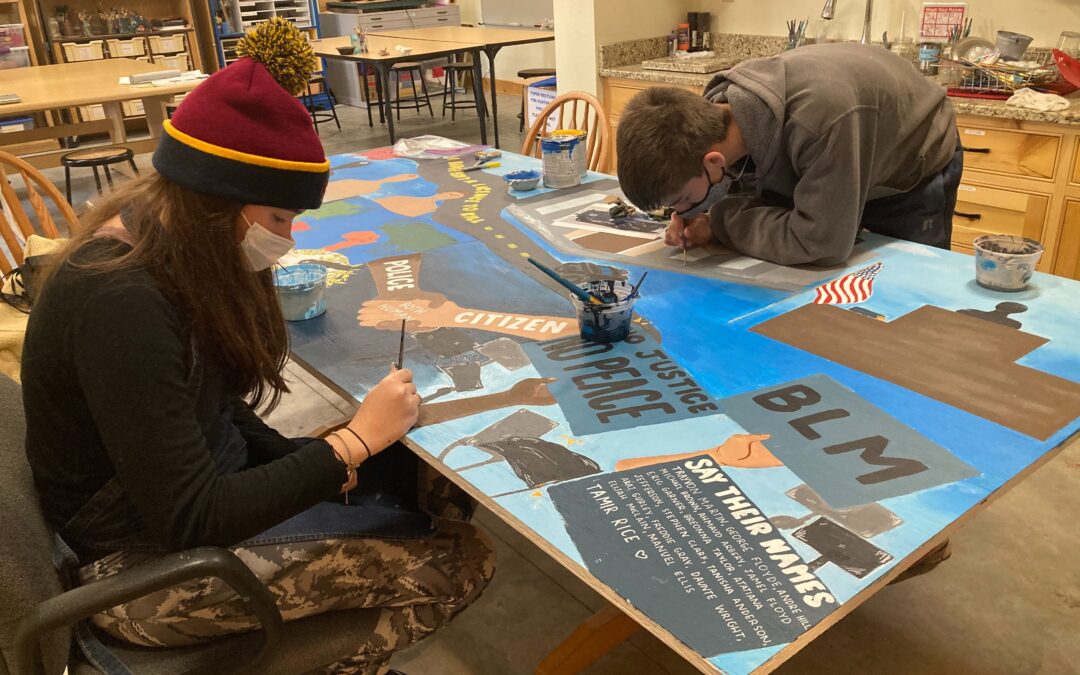Adolescents Assess The Role of Police in Society
Preparing students for life after high school requires guiding them into and through critical thinking processes. Equipping students with research tools and the freedom to explore modern day issues allows them to participate in conversations that impact them and the society that surrounds them. This is a cornerstone of Montessori education at Hershey Montessori School. Shielding students from hot-button issues that our world faces can cause more stress than if we empower them with the freedom to gain knowledge and understanding of the issues and then allow them to formulate their own opinions. This is exactly what our Upper School students tackled in its latest Humanities project.
Hershey’s ninth and tenth year students embarked on a study on “The Role of the Police”. Students examined the history of policing in the world and in the United States. It posed the question, what should be the appropriate role of the police in society?
Each student participated in lectures and expert presentations from police officers Lieutenant Donna Holden and Officer Vashon Williams of the Euclid Police Department. They also met with Samaria Rice, mother of Tamir Rice, who made national news in 2014 when Tamir was tragically shot and killed by Cleveland police outside a local recreation center.
Students were responsible for their own research, and were asked to look at issues such as police accountability, police and community relationships, police training, SWAT techniques and tactics, and groups like Black Lives Matter that are active in seeking police reform.
Students were also divided into topic-based groups where each group developed ideas for artwork connected to what they were learning about their topic. Volunteer artists in the class were called upon to actualize the vision of each of these groups. The artwork would effectively become an expressive mural in the Upper School building at the school’s Huntsburg campus.
Additionally, students met in randomly organized groups to discuss police reform and police expectations. Much of this information is captured in interviews that are part of a documentary feature created by several of the students, with 9th year Willow Athens acting as lead and editor. The students shared their conclusions, which were as varied as their chosen topics revolving around the subject. Some of the takeaways included the need for additional police training pertaining to race, mental health, and de-escalation. Additional funding for training and mandates were also recommended by some.
They finally concluded the Humanities project, their mural, and their project documentary by discussing policing and then took questions from peers, community leaders and experts, as well as Samaria Rice who joined the class virtually. The event included refreshments and gifts for the experts who participated through contribution to the work of the students.
“It was a great experience to see students wrestling with all sides of this complicated issue and coming to recognize the humanity of everyone — citizens and police — is critical,” says Humanities guide John Buzzard. “When we see all people as human, we want to support all and provide the resources and understanding needed for everyone to feel success and value.”

